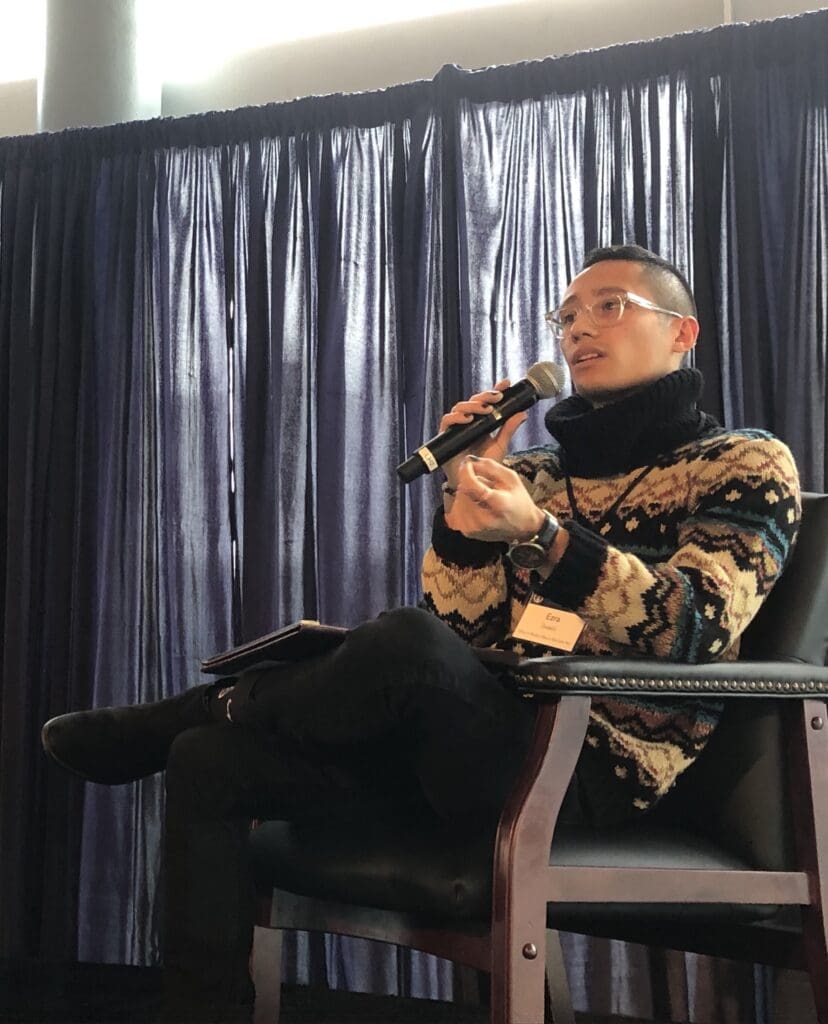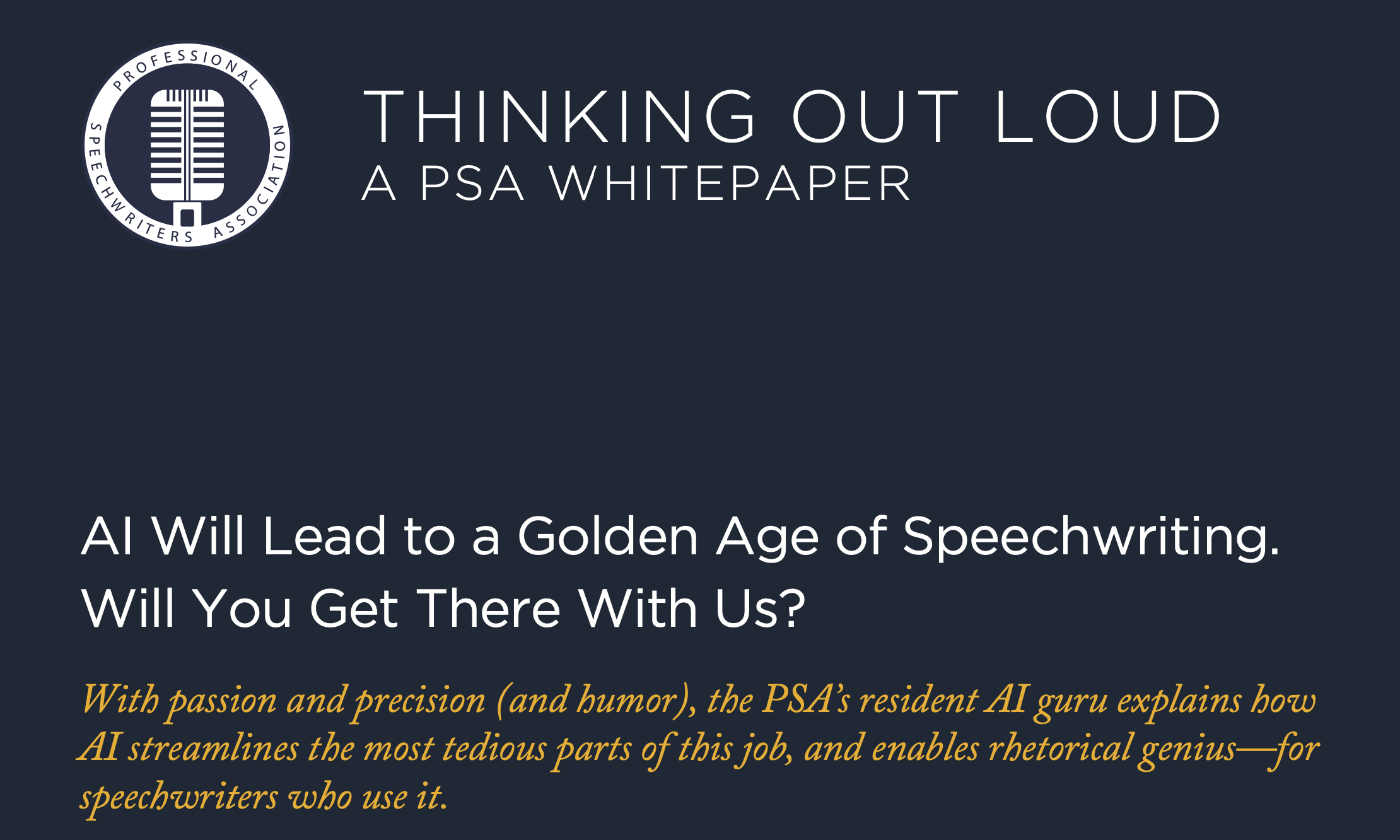No, Speeches Don’t Write Themselves …
January 11, 2024
... and other useful information Boston Globe readers took away from a profile of Mayor Michelle Wu’s speechwriter Ezra Zwaeli.
When I see a “behind the scenes” story about the making of a speech, I groan. As head of the Professional Speechwriters Association, I realize it’s my job to read it. But it feels like a duty indeed.
Why?
Because it doesn’t enlighten anyone, and vaguely discourages everyone, to know who on the speechwriting team wrote this soundbite or that, who wanted to spike the phrase and how the debate went down. I may or may not want to know how the sausage is made, but I definitely don’t care about the team dynamics involved. And that’s usually what journalists want to know—and, what speechwriters want to discreetly dish.
That’s why I was pleasantly surprised by a Boston Globe story Monday about Boston Mayor Michelle Wu’s then-looming State of the City speech, and her head speechwriter Ezra Zwaeli’s agonizing effort to get everything into 2,300 words. “There’s Just Too Much to Say,” read the headline.
Why did I find this story comparatively compelling? Because whether thanks the reporter’s good instincts or Zwaeli’s smart guidance or both, it actually taught readers something useful about the speechwriting process. Three things, in fact:
1. The Practical Difficulty of a State-of-Anything Speech.
“It’s designed to be a reflection of an astonishing scope of ideas,” said Zwaeli, a 27-year-old Jamaica Plain resident, recently in his ninth- floor City Hall office.
Inevitably, compelling aspects of the Wu administration will have to be left on the cutting room floor, he conceded. So far, there have been at least a dozen, and perhaps up to 20 versions of the speech. Zwaeli has lost count. There is “a beast” of a Google doc that he has been whittling away at.
There is a half-hour time window for the address, which will be televised from the MGM Music Hall at Fenway. Three minutes is allotted for a video montage showing Boston under the Wu allotted for a video montage showing Boston under the Wu administration. Additionally, the architects of the document are banking on an anticipated four minutes worth of applause. That leaves 23 minutes. The mayor speaks at about 135 words a minute, which [Zwaeli] called fairly typical.
That leaves room for about 3,200 words.
2. The Reasons Leaders Hire Speechwriters.
Not just to write what the speech they would have written if they had the time. But to write a better speech than that—neutralizing their weaknesses and capitalizing on their strengths. To wit, from the Globe:
Anyone who covers Wu consistently can attest to the fact that Boston’s mayor, a known policy wonk, has a tendency to speak in lengthy paragraphs that often traverse the policy weeds. Think long sentences with multiple clauses, not truncated, pithy soundbites. Zwaeli said one of his first directives from Wu when he was hired two years ago was that none of her speeches should be credibly described as wonky. For the mayor, a double Harvard graduate, it’s important that every word is accessible and understood, he said.
“The polysyllabic words don’t often make the cut,” he said.
Such explanations preempt the perennial “scandal” story: “Mayor’s Office Employs Speechwriter!” In this piece, we learn casually that “Zwaeli leads a team of three, who all help write Wu’s remarks.”
3. It’s Strange, Speechwriting.
“The process of writing for someone else, speechwriting, it’s like a visitation, you’re a guest,” [Zwaeli] said. “You’re invited for some small period of time to inhabit the mind and voice of somebody else. That is an enormous privilege and also can be exhausting and disorienting.”
But working for Wu, with whom he shares Taiwanese ancestry and politically progressive values, has been a welcome experience. ”When I sit down to write a speech for the mayor, I don’t have to stretch as far to imagine into her world,” he said.
“To imagine into her world.” Nice one, Ezra Zwaeli. Did you write that yourself?
Wu delivered the speech Wednesday. So did Zwaeli and his crew: Word count, 3,327.





